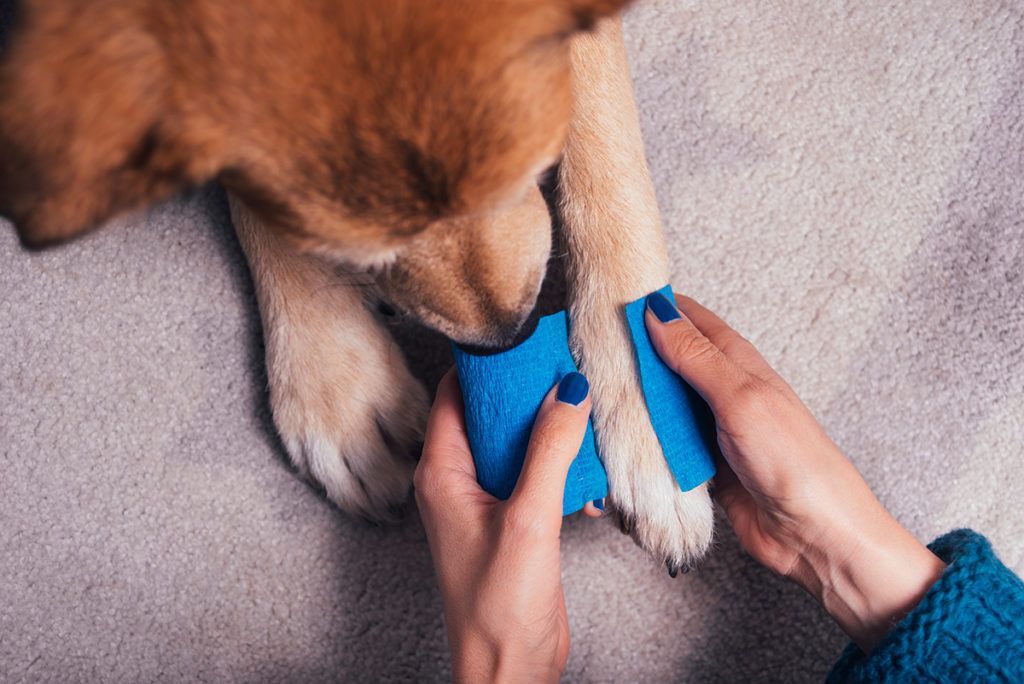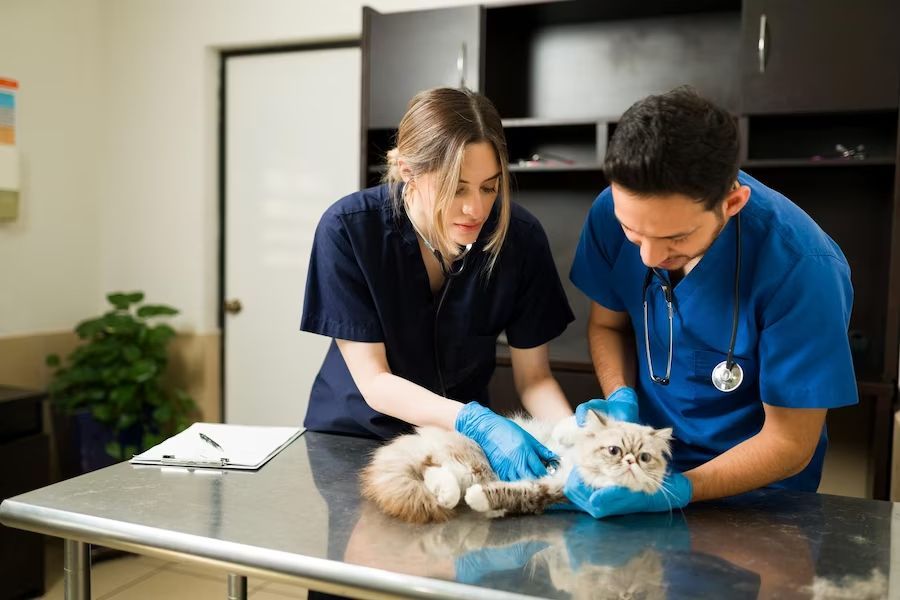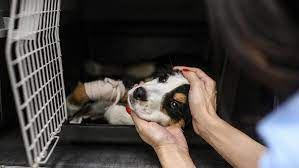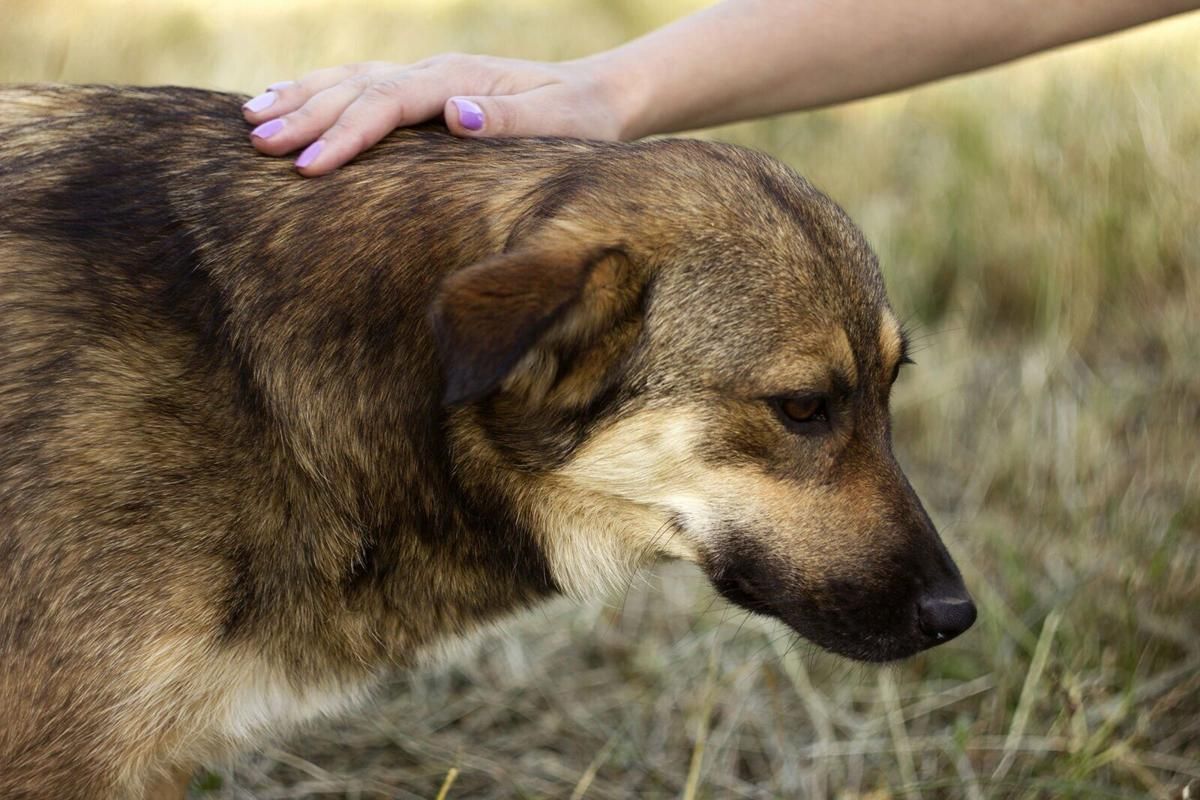Blood in Dog Urine: Causes and What to Do
If notice blood in your dog’s urine, it can be both alarming and very worrisome for any pet owner. For many dogs, blood in the urine (hematuria) could be caused by a urinary tract infection, or in male dogs, a benign prostate problem.
Typically when there is blood in your dog’s urine, this is due to inflammation or infection in the urinary tract which could include the upper or lower urinary tract. However, it’s important to contact a veterinarian or emergency vet as soon as possible to rule out any serious medical issues.
Causes of Blood in Dog Urine
There are many reasons why there may be blood in a dog’s urine, including:
Upper Urinary Tract Causes
Sometimes, hematuria can result from urinary tract issues. Sometimes blood in the urine originates in the upper urinary tract that contains the kidneys.
Some causes for bleeding in the upper urinary tract in dogs include:
Kidney Infection
If your dog is urinating blood, one or both of your dog’s kidneys could be infected.
Kidney Stones
While uncommon, kidney stones can affect one or both kidneys resulting in the presence of blood in the urine.
Idiopathic Renal Hematuria
The term “idiopathic” means unknown, so this condition describes an unknown cause for blood in dog urine originating in the kidneys.
Causes could be due to medications, a kidney infection, or immune system issues.
Kidney Cancer
Kidney cancer in dogs is rare, but it does happen, and can be a cause for there being blood in your dog’s urine. This cancer is a type of cancer that can either be in the kidneys or spread to other parts of the body.
Renal Telangiectasia
The term “telangiectasia” refers to a condition where multiple small blood vessels are dilated in the kidneys.
Certain breeds, such as Welsh corgis, have a genetic predisposition to this issue, which can lead to blood in the urine.
Lower Urinary Tract Causes
The lower urinary tract includes the bladder and the urethra (the tube that connects the bladder) and allows urine to exit the body.
Causes for blood in the lower UT in dogs include the following:
Bladder Stones
Bladder stones are crystals that form in the bladder and can cause inflammation, bleeding, and potential urethral blockages. These “stones” form for a variety of reasons, including diet, genetics, or chronic infections.
Bladder Infection
A lower urinary tract infection (UTI) is by far the most common cause of blood in dog urine. It can be caused by several things, ranging from skin allergies, urethra anatomy of and hormone-related incontinence in spayed females
Bladder Cancer
The symptoms of bladder cancer in dogs are similar to UTIs and can cause accidents in the house, blood in the urine, or difficulty urinating.
Prostate Problems
Intact male dogs tend to have a higher incidence of prostate problems, and prostate enlargement or infections can cause blood in the urine.
Other Causes
In addition to the cases above, there are some other reasons that could explain why there’s blood in a dog’s urine:
- Infectious disease (such as bacterial, viral, or disease)
- Idiopathic causes (unknown)
- Trauma
- Chemotherapy can cause hematuria
- Coagulopathy (this is a condition in which the blood’s ability to clot is impaired, and can cause prolonged or excessive bleeding)
- A low number of platelets or thrombocytes in the blood (a condition known as thrombocytopenia)
- Inflammatory disease or vasculitis
What Do I Do If My Dog is Urinating Blood?
If your dog is urinating blood, the first thing to do is to contact your veterinarian immediately and make an appointment, or go to an emergency vet if your general veterinarian is closed.
During the appointment, your veterinarian will attempt to diagnose your dog’s condition and may conduct a urinalysis, a urine culture, take an X-ray, or ultrasound your dog’s bladder and kidneys. It is important to make an appointment or take your pet to an emergency animal hospital within 24 hours after noticing signs so that your dog’s condition can be diagnosed and treated appropriately.
While at the veterinarian, it’s important to give a thorough history of your dog’s health, including a history of signs and symptoms. This information can give your veterinarian clues as to the cause of blood in your dog’s urine, and help with a diagnosis and treatment as well.
How is Blood in My Dog’s Urine Treated?
Treatment depends on the specific cause of the blood, and your veterinarian may prescribe antibiotics if the issue is a UTI, but in cases where there are other issues, such as bladder cancer or bladder stones, surgery may be recommended.
Hematuria may be caused by a metabolic condition, such as excessive production of steroids by the adrenal glands, or by diabetes . Intact dogs who have a history of hematuria may have an enlarged prostate, in which case the veterinarian may recommend neuter.
Most veterinarians prescribe anti-inflammatory or pain medicine to ease your dogs’ discomfort, and may also recommend a change in diet if your dog has urine crystals or bladder stones. Nutrition is a very important approach to managing urinary tract issues in dogs, and certain prescription foods can reduce the stone formation and optimize urine pH.
How Can I Prevent My Dog from Having Blood in His Urine?
Taking your dog for regular veterinary checkups is the best way to keep your best friend healthy and happy, and to prevent urinary problems. Your veterinarian can tell you if your dog is predisposed to urinary issues, and if so, can test your dog’s urine regularly to make sure your fur-baby is in good health.
It’s also a good idea to monitor your dog’s urinary habits at home, such as observing urination behaviors and habits. If you notice that your dog is urinating more frequently, having difficulty urinating, or “spotting” frequently, contact your veterinarian. These behaviors can be signs of one or more of the medical conditions listed above.
Get Immediate Help if You See Blood in Your Dog’s Urine
As a dog owner, you are your dog’s best friend can caregiver, so careful monitoring of your dog’s urination habits is an important part of keeping him healthy and happy. If you notice that there’s blood in your dog’s urine, it’s extremely important to take them to a vet or emergency vet as soon as possible.
Some causes of this condition are more severe than others, which is why a veterinarian needs to be consulted right away so they can get to the root of why this is happening to your pet and form a treatment plan to help them. If your general veterinarian is closed or unavailable, take your pet to an emergency vet in your area so your pet doesn’t have to wait to be examined.
Contact with your local vet for the best advise
Resource Center









